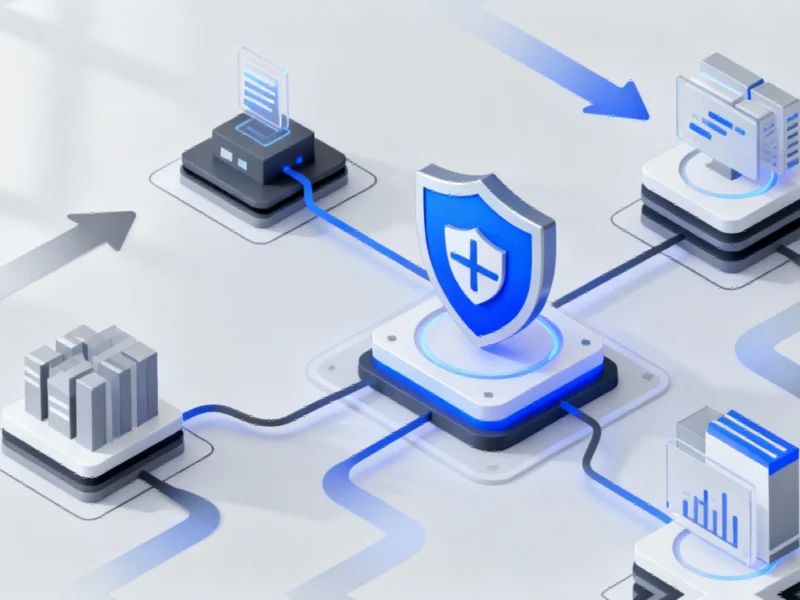According to Engineer Live, Yokogawa Electric Corporation has acquired Intellisync, a cybersecurity and digital transformation solutions provider, and WiSNAM, a developer of advanced grid control and energy management solutions. Both companies will be integrated into BaxEnergy, Yokogawa’s wholly owned renewable energy management subsidiary, creating what the company describes as a “digital hub” for expanded cybersecurity capabilities and grid control product development. Intellisync brings 24/7 security operations center capabilities with expertise in cybersecurity-as-a-service, while WiSNAM’s flagship Power Plant Controller technology enables precise data collection and grid code compliance for photovoltaic and hybrid plants. Yokogawa executives stated the acquisitions will accelerate development of secure, high-performance solutions for decarbonizing energy-intensive industries while strengthening the company’s SaaS and recurring revenue portfolio. This strategic move signals significant shifts in the energy technology landscape.
The Critical IT-OT Convergence Challenge
Yokogawa’s dual acquisition strategy directly addresses one of the most persistent challenges in industrial automation and energy management: the historical divide between information technology (IT) and operational technology (OT). Traditional cybersecurity approaches often fail in industrial environments because they don’t account for the unique requirements of operational systems controlling physical infrastructure. By combining Intellisync’s cybersecurity expertise with WiSNAM’s grid control technology, Yokogawa is positioning itself to offer truly integrated solutions that protect both corporate networks and physical operations. This convergence becomes increasingly critical as renewable energy installations face sophisticated cyber threats that could disrupt power grids and compromise energy security.
The Renewable Energy Security Imperative
The timing of these acquisitions reflects the growing cybersecurity vulnerabilities in renewable energy infrastructure. As solar farms, wind installations, and hybrid plants become more digitally connected and automated, they present attractive targets for cyber attacks. Unlike traditional power plants with decades of security hardening, many renewable facilities operate with modern digital controls that weren’t designed with nation-state level threats in mind. WiSNAM’s Power Plant Controller technology, now backed by Intellisync’s 24/7 security operations, creates a compelling value proposition for renewable operators who must balance grid compliance requirements with robust security postures. This is particularly crucial as renewable penetration increases and these assets become more critical to grid stability.
Shifting Competitive Dynamics
This move significantly alters the competitive landscape for industrial automation and energy management solutions. Yokogawa traditionally competed with companies like Siemens, ABB, and Schneider Electric in process automation, but now positions itself as an integrated provider spanning cybersecurity, grid management, and renewable energy optimization. The creation of a “digital hub” through BaxEnergy suggests Yokogawa aims to become a one-stop-shop for industrial digital transformation in the energy sector. This could pressure smaller specialized players who offer either cybersecurity OR grid management solutions but lack the resources to provide comprehensive integrated offerings. The emphasis on SaaS and recurring revenue also indicates Yokogawa’s strategic pivot toward subscription-based business models that provide more predictable income streams.
Stakeholder Impact and Market Implications
For renewable energy developers and operators, this consolidation means potentially simpler procurement processes and more integrated solutions, but also raises concerns about vendor lock-in and reduced flexibility. Enterprise energy consumers benefit from more secure and reliable renewable energy integration, which supports their decarbonization goals. However, smaller cybersecurity firms and grid technology startups may find it increasingly difficult to compete against integrated offerings from industrial giants like Yokogawa. The acquisitions also signal to investors that the energy technology sector is maturing, with established players aggressively acquiring innovation rather than developing it organically. This could drive up valuation multiples for remaining independent cybersecurity and grid management specialists as acquisition targets.
The Integration Challenge Ahead
While the strategic rationale is clear, Yokogawa faces significant integration challenges merging three distinct corporate cultures and technology stacks. Intellisync’s cybersecurity-as-service model represents a different business approach than Yokogawa’s traditional equipment and software sales. Similarly, WiSNAM’s grid control technology must be seamlessly integrated with BaxEnergy’s existing renewable energy management platforms without disrupting current customer operations. The success of this strategy will depend on Yokogawa’s ability to create truly unified solutions rather than simply offering bundled products from acquired companies. History shows that technology acquisitions often fail to deliver expected synergies when integration is poorly executed, particularly when combining companies with different technical architectures and customer engagement models.




